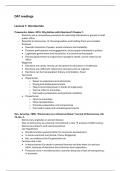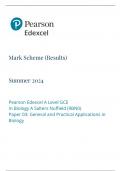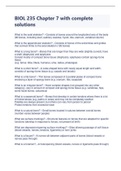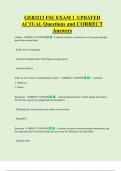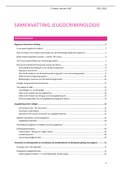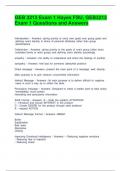Samenvatting
Readings summary Democracies, Autocracies and Transitions
- Instelling
- Universiteit Van Amsterdam (UvA)
Summary of all the readings from DAT from 2024. I also uploaded a document with lecture notes. My grade for this course was a 9.0 and my grade for the endterm was a 10.0.
[Meer zien]
